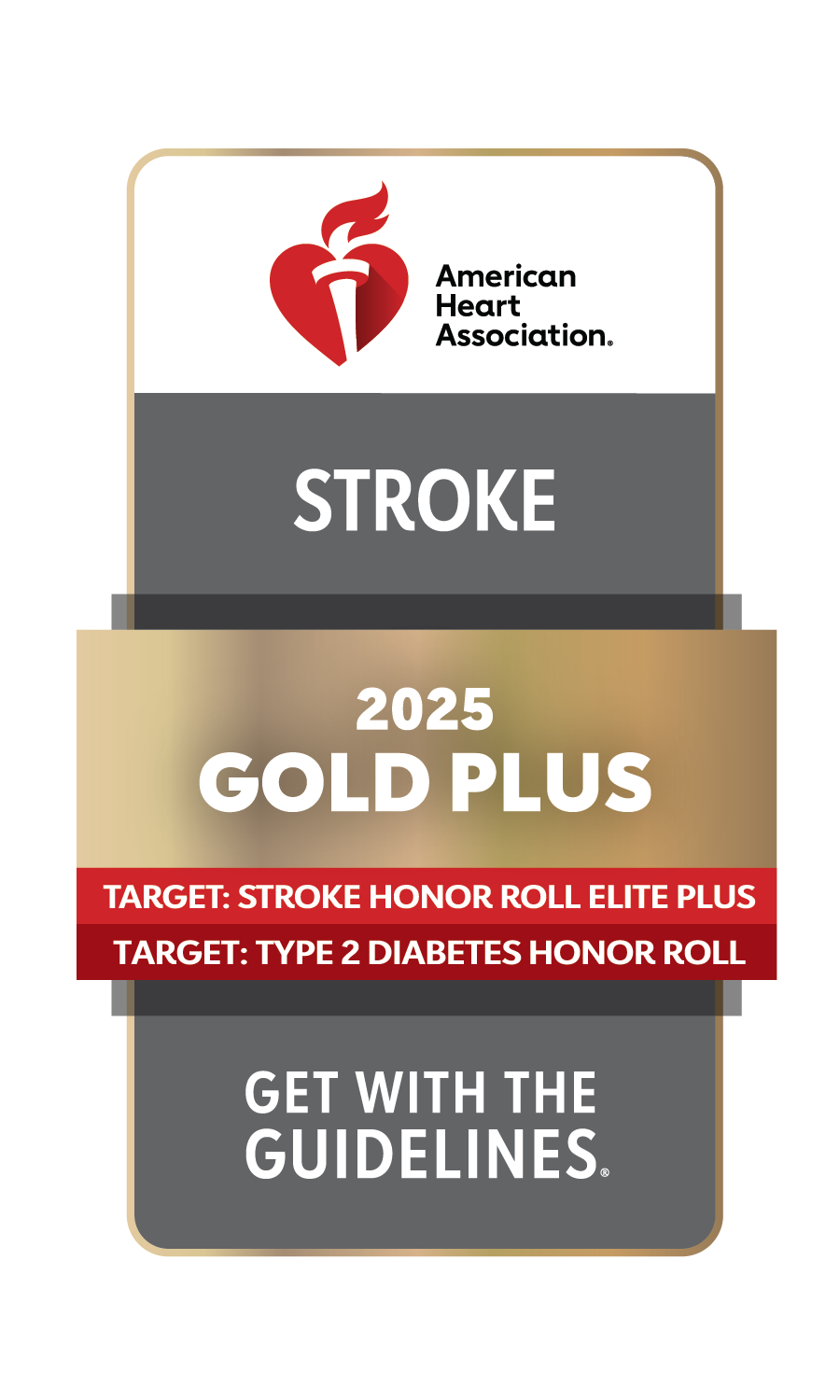Know the Warning Signs of a Stroke
At the first sign of a stroke, call 911 immediately.

Remember the acronym F.A.S.T.
- Face - Face drooping
- Arm - Arm weakness
- Speech - Speech difficulty
- Time - Time to call 911 immediately
If a person experiences sudden one-sided face, arm or leg weakness or change in speech it may be the onset of a stroke. When it comes to stroke, time is critical. Getting help quickly is essential for improved outcomes.
Knowing where to turn for treatment is also critical. At VCU Health's Comprehensive Stroke Center, we have the experience and expertise to help stroke patients efficiently and effectively.
When it comes to stroke, time is brain. Getting help quickly is essential. Meet Mildred Thomas, stroke survivor. Luckily, one of our team members knew how to identify stroke symptoms and what to do to get help.
Understanding Stroke Risk Factors
Meet Tia Ingram, stroke survivor. She suffered a stroke at only 22 years old, while pregnant. Now both mom and baby are doing well. Watch her incredible story
Certain factors are important considerations in a person's chance or risk of a stroke. Some risk factors can be changed, treated or modified - and some are not within our control, like heredity.
- High blood pressure (hypertension): The main risk factor for stroke, blood pressure is considered high if it stays at or above 140/90 over time.
- Smoking: Damaging blood vessels and raising blood pressure, smoking also may reduce the amount of oxygen that reaches your body's tissues. Exposure to secondhand smoke also can damage the blood vessels.
- Diabetes: A disease in which the blood sugar level is high because the body doesn't make enough insulin or doesn't use its insulin properly, diabetes increases the risk of stroke. Insulin is a hormone that helps move blood sugar into cells where it's used for energy so proper management is necessary.
- Heart disease: Coronary heart disease (also called coronary artery disease), heart failure and atrial fibrillation can cause blood clots that can lead to a stroke.
- Brain aneurysms or arteriovenous malformations (AVMs): Aneurysms are balloon-like bulges in an artery that can stretch and burst. AVMs are tangles of faulty arteries and veins that can rupture or break open within the brain. AVMs may be present at birth, but often aren't diagnosed until they rupture.
- Age and gender: Your risk of stroke increases as you get older. At younger ages, men are more likely than women to have strokes. However, women are more likely to die from stroke. Women who take birth control pills also are at slightly higher risk of stroke.
- Race and ethnicity: Strokes occur more often in African American, Alaska Native and American Indian adults than in Caucasian, Hispanic or Asian American adults.
- Personal or family history of stroke or transient ischemic attack (TIA): If you've had a stroke, you're at higher risk for another one. Your risk of having a repeat stroke is the highest right after a stroke. A TIA - also called a "mini-stroke" - increases your risk of having a stroke, as does having a family history of stroke.
Other risk factors for stroke, many of which of you can control, include:
- Alcohol and illegal drug use, including cocaine, amphetamines and other drugs
- Unhealthy cholesterol levels
- Lack of physical activity
- Unhealthy diet
- Obesity
- Stress and depression
- Certain medical conditions, such as sickle cell anemia, inflammation of the blood vessels and bleeding disorders
Following a healthy lifestyle can lower the risk of stroke.
- Some people also may need to take medicines to lower their risk.
- Sometimes strokes can occur in people who don't have any known risk factors so it is important to know the signs of a stroke.



